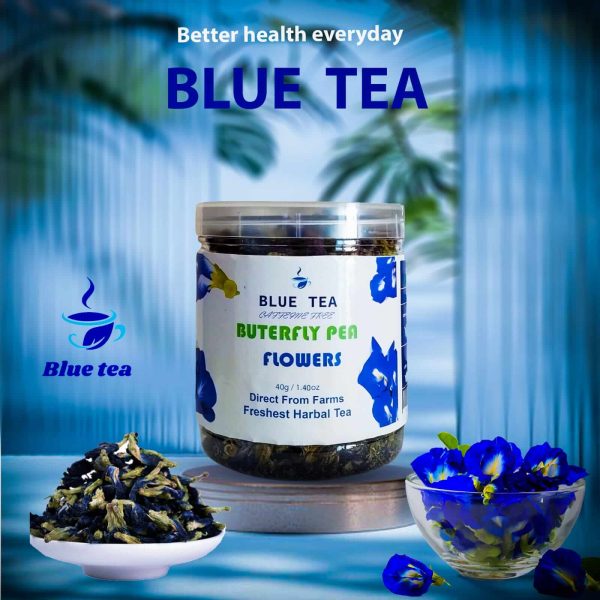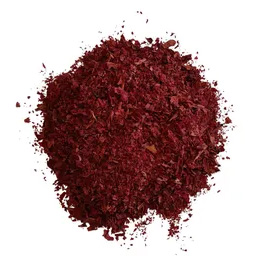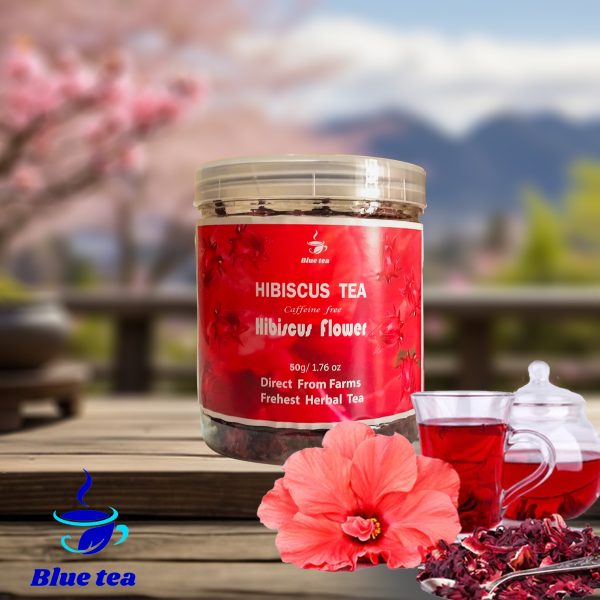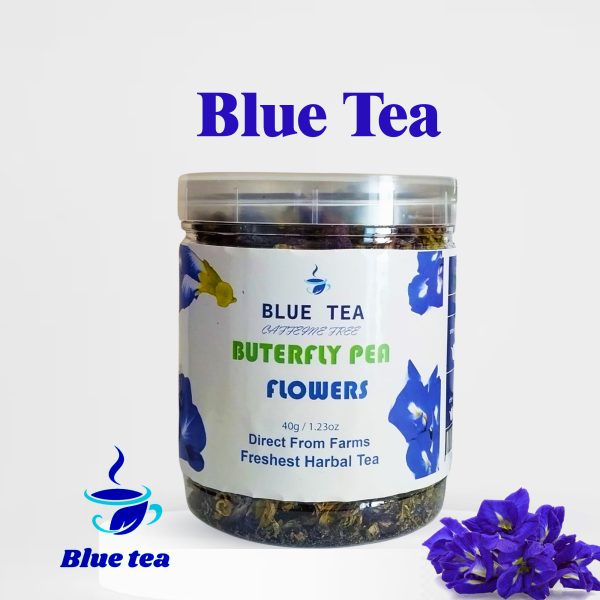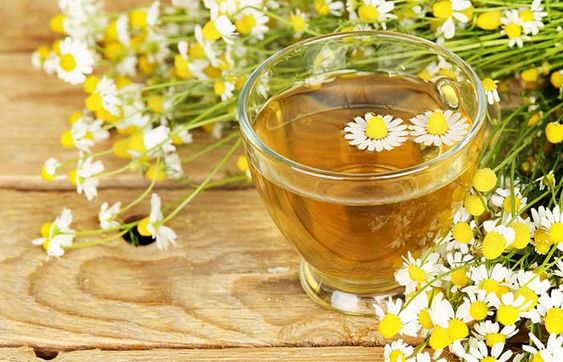
Chamomile Tea: A Soothing Elixir for Body and Mind In the realm of herbal teas, few can rival the gentle allure and comforting properties of chamomile tea. Derived from the delicate flowers of the chamomile plant, this herbal infusion has been cherished for centuries for its calming aroma, subtle flavor, and myriad health benefits. Let’s delve into the enchanting world of chamomile tea, exploring its origins, therapeutic properties, and cultural significance.
Origins and Cultural Heritage Chamomile tea boasts a rich history dating back to ancient civilizations such as the Egyptians, Greeks, and Romans, who revered it for its medicinal properties and aromatic qualities. The two most common varieties of chamomile used for tea are German chamomile (Matricaria chamomilla) and Roman chamomile (Chamaemelum nobile), both of which belong to the Asteraceae family.
A Symphony of Flavor and Aroma
One of the most captivating aspects of chamomile tea is its delicate yet distinctive flavor profile. Infused with hints of apple and floral undertones, each sip offers a soothing sensation that gently caresses the palate. The tea’s mild, slightly sweet taste makes it an ideal beverage for relaxation and unwinding after a long day.
Therapeutic Benefits for Mind and Body
Chamomile tea is renowned for its array of therapeutic properties, making it a popular choice for promoting overall health and well-being. Here are some of the key benefits associated with chamomile tea:
Cultural Significance and Modern Applications :Chamomile tea holds a special place in various cultures around the world, where it is valued not only for its therapeutic properties but also for its cultural significance. In addition to being enjoyed as a soothing beverage, chamomile tea is used in traditional medicine systems such as Ayurveda and traditional Chinese medicine for its healing properties.
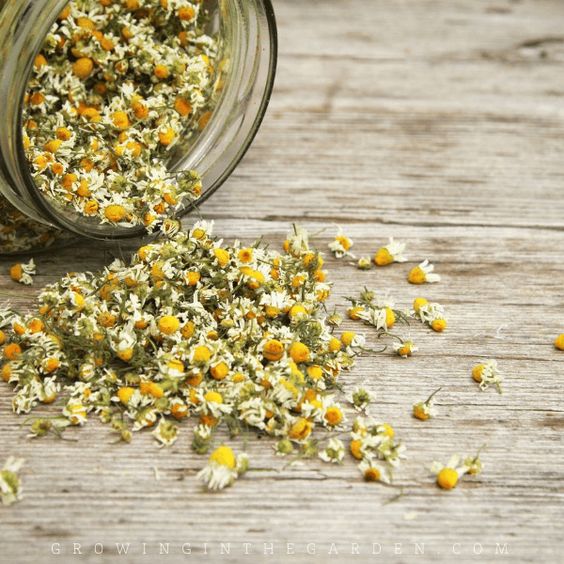
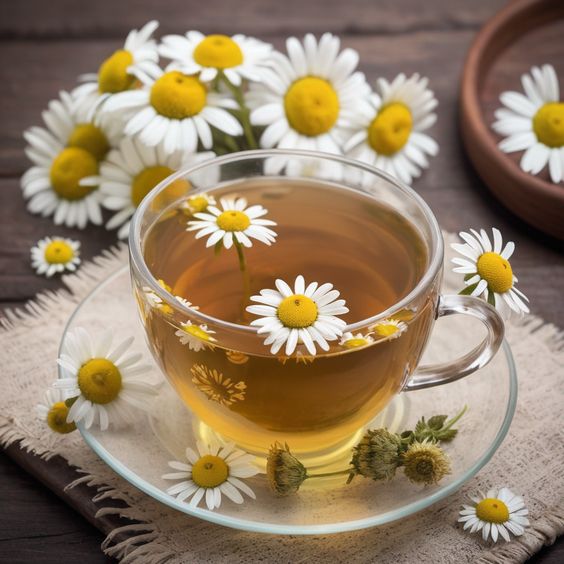
Promotes Relaxation and Sleep: Chamomile tea is prized for its calming effects on the mind and body, making it an excellent natural remedy for reducing stress and anxiety. Its mild sedative properties can help promote relaxation and improve sleep quality, making it an ideal bedtime beverage.
Supports Digestive Health: Chamomile tea has been traditionally used to alleviate digestive discomfort, including indigestion, bloating, and nausea. Its anti-inflammatory and antispasmodic properties can help soothe the digestive system and ease gastrointestinal symptoms.
Relieves Menstrual Cramps: For centuries, chamomile tea has been valued for its ability to alleviate menstrual cramps and discomfort associated with PMS (premenstrual syndrome). Its gentle muscle-relaxing properties can help reduce uterine contractions and ease menstrual pain.
Boosts Immune Function: Chamomile tea is rich in antioxidants, including flavonoids and terpenoids, which help strengthen the immune system and protect against infections and illnesses.
Promotes Skin Health: When applied topically or consumed orally, chamomile tea may help soothe skin irritations, reduce inflammation, and promote healing. It is often used in skincare products for its anti-inflammatory and antimicrobial properties.
-
Blue Tea
Blue Tea-Grade A Butterfly Pea Flower Tea, 100% Natural organic Tea 40Gm. (150 Cup Tea)
Rated 5.00 out of 5৳ 450.00 Order Now -
Blue Tea
Blue Tea-Grade A Butterfly Pea Flower Tea, 100% Natural organic Tea 40Gm. (150 Cup Tea)
Rated 5.00 out of 5৳ 500.00Original price was: ৳ 500.00.৳ 450.00Current price is: ৳ 450.00. Order Now -
Himalayan Rhododendron
Dried Himalayan Rhododendron Flower | Roza azalea Flower Dried | Buransh Flower
Rated 0 out of 5৳ 500.00Original price was: ৳ 500.00.৳ 450.00Current price is: ৳ 450.00. Order Now -
Hibiscus Rose Tea
Hibiscus Rose Tea. (50Gm.)100% Natural organic Tea 40Gm. (150 Cup Tea)
Rated 0 out of 5৳ 500.00Original price was: ৳ 500.00.৳ 450.00Current price is: ৳ 450.00. Order Now -
Blue Tea
Blue Tea-Grade A Butterfly Pea Flower Tea, 100% Natural organic Tea 40Gm. (150 Cup Tea)
Rated 5.00 out of 5৳ 500.00Original price was: ৳ 500.00.৳ 450.00Current price is: ৳ 450.00. Order Now

